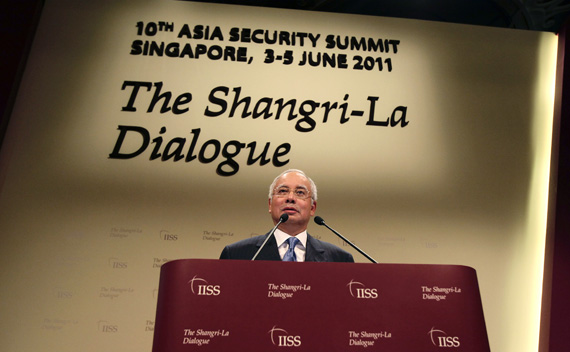What to Watch for At the Upcoming Shangri-La Dialogue
More on:

The annual Shangi-La Dialogue hosted by IISS in Singapore is underway and goes until Sunday. In past years, the Dialogue has proven a major forum for hashing out critical Asian security issues, and often has been a flashpoint for conflict between the U.S. and China. Some issues to watch this year:
1. Is the U.S. backing off its tough stance on the South China Sea?
After two years of increasingly aggressive Chinese posturing on the South China Sea, last summer the Obama administration, led by Secretary of State Hillary Clinton, took a much tougher line on the Sea, warning China that the U.S. considered resolution of any claims to the Sea a core American national interest. China was, unsurprisingly, not happy about Hillary Clinton’s approach, and Beijing has continued its strong-arm tactics, bullying Vietnam, the Philippines, and other claimants this year. But in recent speeches Assistant Secretary of State Kurt Campbell has downplayed any U.S.-China friction over the Sea, instead highlighting the many other areas of potential cooperation between Washington and Beijing. But a number of Southeast Asian nations, including Vietnam, worry that the U.S. no longer has their back, and that the Obama administration’s softer approach will only further embolden Beijing. Look for this to play out further at the Dialogue.
2. Thailand’s Upheaval
Thailand is in the height of election season, and most observers believe that the upcoming poll will only bring further turmoil to the Kingdom, since it is likely to result in either an opposition victory and some kind of military intervention or a Democrat victory brokered by the military and the palace. At the Dialogue, both ASEAN and the United States will have an opportunity to emphasize to Thai participants what their response will be if the military meddles further in Thai politics.
3. U.S.-China Transition
The Dialogue has provided an opportunity for high-level meetings between American and Chinese defense officials, even if in the past those meetings sometimes have turned testy. Outside of the Dialogue and other such forums, military to military relations still remain frighteningly underdeveloped, given the potential for conflict between the U.S. and China over so many issues. But both China and the U.S. are in transition – China to the next generation leadership, and the U.S. to a new Secretary of Defense after the long-serving and highly successful Robert Gates. Will these transitions further complicate military to military relations, which have barely recovered in recent years? At times of transition, neither side can afford such limited military dialogue.
More on:
 Online Store
Online Store